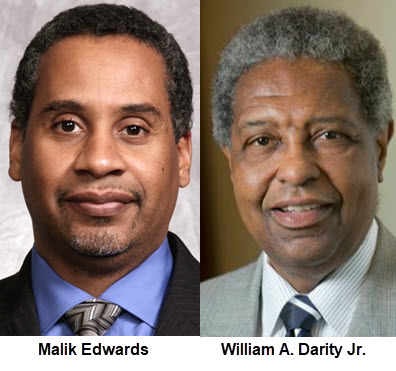Become a Patreon!
Abstract
Excerpted From: Malik Edwards and William A. Darity Jr., Why Color-blind Solutions Won't Solve the Racial Wealth Gap: How We Can Overcome the Constitutional Hurdles to Race Conscious Remedies in Addressing the Wealth Gap, 110 Kentucky Law Journal 769 (2021-2022) (163 Footnotes) (Full Document)
 “It is unnecessary in 20 America to have individual Negroes demonstrate that they have been victims of racial discrimination; the racism of our society has been so pervasive that none, regardless of wealth or position, has managed to escape its impact.”
“It is unnecessary in 20 America to have individual Negroes demonstrate that they have been victims of racial discrimination; the racism of our society has been so pervasive that none, regardless of wealth or position, has managed to escape its impact.”
Justice Marshall's observation as to the effects of racial discrimination in the twentieth century is equally true in the twenty-first century. The racial wealth gap is over a trillion dollars and shows no signs of closing. The federal government has implemented numerous policies that have contributed to the racial wealth gap, and the burden of addressing the wealth gap is too large for anyone other than the federal government to address. In 2019, Congress held hearings on H.R. 40, a bill that would establish a “Commission to Study and Develop Reparation Proposals for African-Americans.” Several versions of H.R. 40 have been introduced since 1989. The hearings in 2019 were the first hearings in over a decade. Kuo and Means have noted that reparations discussions are overdue. More importantly, they provide an argument for Federal accountability. They argue that “the United States is a legal person separate and apart from its citizens. Seeking reparations from the United States does not turn on the guilt of its citizens any more than prosecuting a corporation turns on the guilt of its shareholders.” This accountability turns not on justifiability, but rather, that reparations can be justified through the political process.
The harm has been established; it has been noted that “[r]ecent data from the Survey of Income and Program Participation [] shows that black households hold less than seven cents on the dollar compared to white households.” The closing of the racial wealth gap requires “an accurate assessment of the causes of the disparit[ies] and imaginative action to produce systemic reform and lasting change.” The question is if a politically constructed remedy would pass a constitutional challenge. The threat of such a challenge has limited consideration of non-race-neutral remedies to address the racial wealth gap. The Court's apparent failure to appreciate the potential of racialized effects in seemingly race-neutral policies, and the federal role in these policies' implementation, has limited the fortitude to use race in creating remedies. This Article will document the current state of the Court's race-conscious jurisprudence and provide arguments as to why race-conscious remedies are still necessary to address the racial wealth gap and can meet the challenge of strict scrutiny.
[. . .]
The last of the Urban Institute's proposals are grounded in assumptions around savings. First, there is no evidence that Black Americans have a lower savings rate than White Americans once household income is taken into account. Kilolo Kijakazi, a fellow at the Urban Institute, found no difference in pension savings rates. Kijakazi noted, “for comparably situated individuals, Blacks, whites, and Hispanics respond in a similar fashion in terms of joining a 401(k) plan and deciding how much to contribute.” Again, supplemental savings--either through baby bonds or retirement savings--may result in some benefit to Black Americans but will not close the wealth gap. Even less so when done universally. Closing the wealth gap requires an infusion of capital to Black Americans. Reparations are necessary to close the racial wealth gap, and if Congress was to ever implement them, they should pass constitutional muster.
Malik C. Edwards, JD, PhD, North Carolina Central University School of Law.
William A. Darity PhD, Sanford School of Public Policy Duke University.
Become a Patreon!


